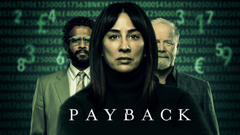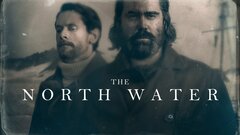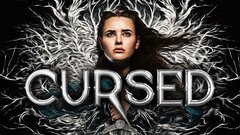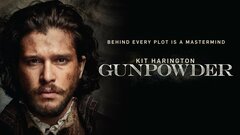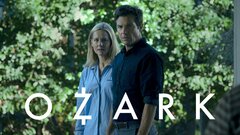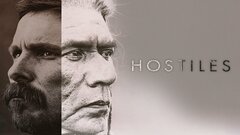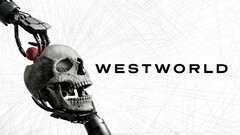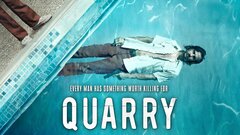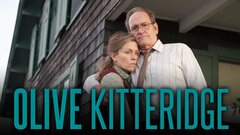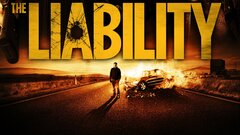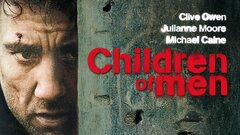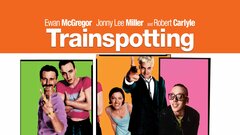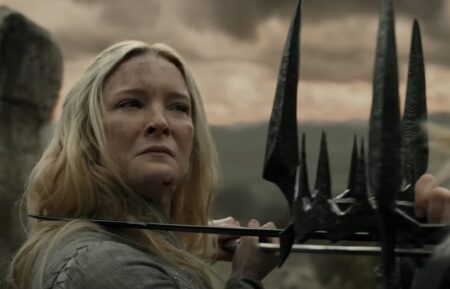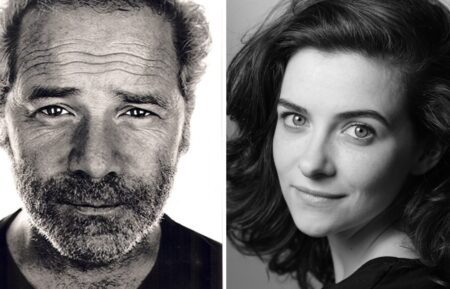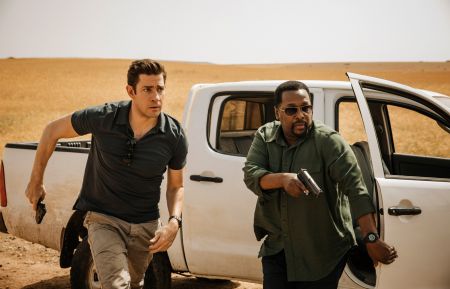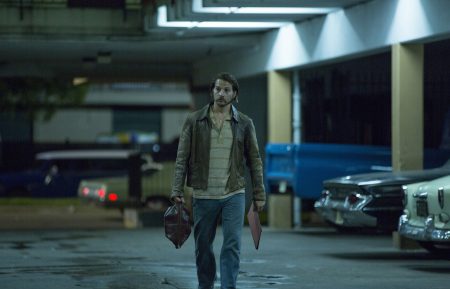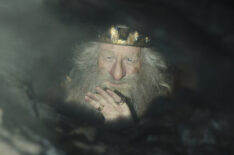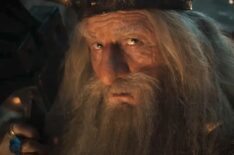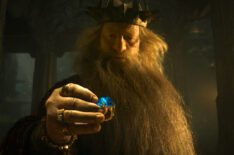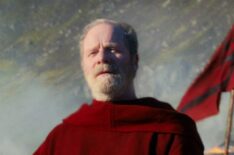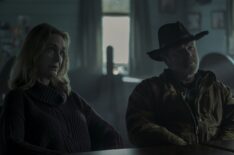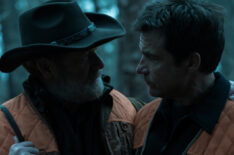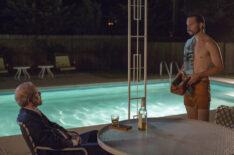Peter Mullan made an early impression as a tough man in films such as "Trainspotting" (1996) and "My Name is Joe" (1998), he would also show incredible sensitivity in his writing and direction of such films as "Orphans" (1998) and "The Magdalene Sisters" (2002). This interest in the plight of the oppressed was readily evident in his earliest work in the Leftist political theater movement that emerged in Glasgow under the rule of British Prime Minister Margaret Thatcher, and continued to inform his work.
In the talented hands of Mullan, characters that might have otherwise remained two-dimensional took on startling nuance and empathy, from the asbestos removal worker driven to homicide in "Session 9" (2001), to the cuckolded husband in "Young Adam" (2003) to the stalwart father in "War Horse" (2012). As an actor, writer and director, Mullan excelled at telling the stories of individuals whose hard exteriors served as armor to protect their wounded hearts.
Peter Mullan was born on Nov. 2, 1959, in Peterhead, Scotland, and grew up in nearby Mosspark. As the second youngest of eight children in a working class Roman Catholic family, Mullan came to understand hardship at an early age. While the family was not poor - Mullan's mother, Patricia, was a nurse and his father, Charles, was a lab technician at the University of Glasgow - the family did suffer increasingly physical abuse at the hands of Mullan's father, an alcoholic whose painful decline from lung cancer fueled his depressive rages.
In high school, Mullan joined a local gang to escape the pain of his stormy home life, but he quickly found himself wanting to escape their confines. The gang had led Mullan to quit school, but a brief stint in a factory job made him realize his mistake. After returning to school, he found his refuge in a school play and discovered a passion for performing. Not surprisingly, the gang threw him out for being "too posh," solving his short-term problem and setting him on a path to his professional career.
Mullan enjoyed performing on stage but also showed an interest in film early on. He directed a number of short films as a student, and applied to the National Film School, but was not admitted. Instead, he attended the University of Glasgow, his father's place of work, studying Economics and Drama. Ironically, Mullan's father died on the first day of class. Despite dark beginnings, he would blossom in school and direct his first feature film as a student, "There was an Englishman" (1979).
After graduating, Mullan earned a living in an array of definitively odd jobs, including work as a pub bouncer, a community theater instructor, and, at the height of the disco craze, a dance contest hustler. On top of this, he pursued his artistic passions with whatever extra time he could manage, and frequently with more time than he could manage.
In his twenties, Mullan was hospitalized several times for exhaustion from juggling school, work, auditions, and a deepening involvement with the political theater movement of the 1980s. Left-wing "protest theater" blossomed under the heels of the Conservative party that dominated British politics at the time. Mullan wrote several plays during that period, including "Harmony Row," which protested a poll tax introduced by conservative Prime Minister Margaret Thatcher. He would rise to prominence in the movement, while developing a reputation as a performer of laser-like intensity.
In 1988, Mullan made his professional acting debut in a Christmas show produced by Glasgow's Wildcat Theater. Two years later, he was one of the busiest actors in Glasgow, earning rave reviews for his performance in the Citizens' Theater's 1990 production of "Crow" and make his professional film debut with a small roles in the locally-produced "The Big Man" (1990) starring Liam Neeson. He would also break into television with roles on "Your Cheatin' Heart" (BBC, 1990), starring Tilda Swinton, and the long-running cop drama "Taggart" (BBC, 1983-2010), as well as the made-for-television movie, "The Opium Eaters" (BBC, 1990).
Mullan harnessed the momentum created by his acting career to create new opportunities to return to directing. In 1991, with the help of Scottish television, he would start principle photography on the short film "Close." Although not completed until 1994, the film would mark the beginning of a long collaboration between Mullan and a creative team that included producer Frances Higson, cinematographer Grant Cameron, editor Colin Monie, and actor Gary Lewis.
Mullan would appear in Ken Loach's "Riff Raff" (1991) and in increasingly larger roles on episodic television, but developing his directorial skills was paramount. He completed "Close" in 1994 and followed it with "A Good Day for the Bad Guys" (1995). In 1996, Mullan wrote and directed "Fridge," a harrowing short about two bums attempting to free a child from an abandoned refrigerator. The film won 15 international awards and introduced the world to Mullan as a director. As a result, he would direct several episodes of the series "Cardiac Arrest" (BBC, 1994-96).
When Mullan did book more acting work in feature films, the roles would still be small, but usually memorable: a terrifying thug in Danny Boyle's debut film, "Shallow Grave" (1994), a fatally-ignorant soldier in "Braveheart" (1995), and Swanney, the drug dealer in Danny Boyle's sophomore feature, "Trainspotting" (1996). His acting would also garner awards, including Best Actor at the Cannes Film Festival, for his breakthrough starring role as a recovering alcoholic in Ken Loach's romantic drama, "My Name is Joe" (1998).
After a decade of hard work as a struggling actor and director, 1998 found Mullan at the top of his game. That year he wrote and directed his first feature film, "Orphans," about four adult siblings reuniting at their mother's funeral. It would premiere at Cannes, win numerous awards at the Venice Film Festival, and receive a theatrical release in the U.S. in 1999.
As an actor, he would enjoy starring roles opposite Saffron Burrows in Mike Figgis' adaptation of August Strindberg's "Miss Julie" (1999), in Michael Winterbottom's "The Claim" (2000), as well as supporting roles in "Mauvais Passe" (1999) starring Daniel Auteuil, and "Ordinary Decent Criminal" (2000), starring Kevin Spacey. While Mullan was a familiar face on British television, and had developed a reputation in foreign and independent film circles for intense yet highly nuanced performances in films by auteurs, he would make his first impression on many Americans with his portrayal of a blue-collar worker reaching his homicidal boiling point in Brad Anderson's horror sleeper, "Session 9" (2001).
The following year, Mullan would write and direct his most challenging work yet, "The Magdalene Sisters," a dramatic indictment of the abuses committed upon young Scottish women in Catholic church-run Magdalene Sisters "asylums." The film received almost universal critical praise and numerous nominations and awards, including a nod for Best Picture from the Independent Spirit Awards.
Following the bloom of praise for his stunning work on "The Magdalene Sisters," Mullan slipped quietly back into acting in the same sort of challenging, art house films that he had before, most notably playing a cuckolded boatman in "Young Adam" (2003) opposite Tilda Swinton and Ewan McGregor; a middle-aged man who decides to swim the English Channel in "On A Clear Day" (2005); a small but terrifying role as a tyrannical refugee camp commandant in "Children of Men" (2006); and Odoacer, leader of the Germanic tribes in "The Last Legion" (2007) opposite Colin Firth. Mullan also returned to television with starring roles in two miniseries: "The Shoebox Zoo" (BBC, 2004) and "The Fixer" (ITV, 2009).
In 2007, Mullan also returned to his political agenda, portraying Gordon Brown in the television film, "The Trial of Tony Blair" (Channel 4 television, 2007), a dramatic critic of former British Prime Minister Tony Blair, of whom Mullan had long been a vocal opponent. In 2005, Mullan had taken part in the occupation of the Glasgow offices of the U.K. Immigration Services, protesting "dawn raid" deportation tactics instated while Blair and the Labour Party were in control of Parliament. Mullan would join the political front lines again in 2009, protesting the BBC's refusal to air an appeal for disaster relief for Gaza. Mullan declared then that he would never work for the BBC again. That same year, he joined the regular cast of BBC competitor ITV's series, "The Fixer" (ITV, 2008-09).
After seven years, Mullan returned to writing and directing with "Neds" (2010), a deeply personal if not entirely autobiographical story of a young Glaswegian growing up in the 1970s who struggles to rise above the abuses of his alcoholic father and the low expectations of his fellow delinquents. Like his previous work, "Neds" won numerous awards, including Best Director and Best Screenplay awards from BAFTA Scotland.
Mullan wrote and directed the film around his schedule for "The Fixer" as well as his role as the murderous vicar Martin Laws in all three parts of the Channel Four miniseries " The Red Riding Trilogy" (2009), and a cameo as Death Eater Yaxley in the mega-hit "Harry Potter and the Deathly Hallows, Part One" (2010). Mullan's ability to deliver moving, utterly real performances in both esoteric art film and popcorn entertainment would remain a hallmark of his career.
In 2011, Mullan would star as a man self-destructing from his own rage issues in Paddy Consadine's directorial debut, "Tyrannosaur," and play the supporting role of the good-hearted father in Steven Spielberg's adaptation of "War Horse."
By John Crye

